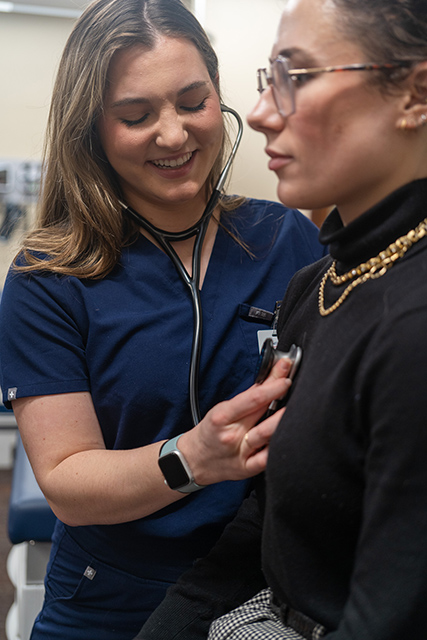
Julianne Blackburn, a physician assistant studies student, has spearheaded a groundbreaking advancement in health care education at Samford University by adopting a digital stethoscope that connects to her cochlear implant via Bluetooth. This innovative solution, suggested by her professor, Heather Hallman, not only accommodates Blackburn's unique needs but also enhances the learning experience for the entire class.
Blackburn's journey began with a simple conversation during her first semester at Samford, where she discussed necessary accommodations with Hallman. Recognizing Blackburn's hearing impairment, they jointly researched stethoscopes compatible with her cochlear implant. After careful consideration, they selected a digital stethoscope with Bluetooth connectivity, allowing Blackburn to hear cardiac sounds clearly.
“This a great example of equity and inclusion in education. Beyond benefiting Julianne, it has the potential to elevate the educational journey for all learners,” Hallman said. “Observing how this technology can bridge gaps is not only exciting, but also reflects progress in promoting inclusive educational practices.”
Due to the positive outcome for Blackburn, Hallman is now developing a grant proposal to acquire additional Bluetooth stethoscopes for the classroom. These stethoscopes not only amplify cardiac sounds but also facilitate real-time sharing of audio within the entire class. Additionally, they can perform a three-lead EKG while listening, enhancing students' diagnostic skills.
Blackburn's initiative highlights the options for accessibility in higher education while emphasizing the power of technology in health care.
“By providing access with medical technology, you’re able to include more medical providers who understand where some patients are coming from,” said Blackburn.
By embracing innovative technologies and accommodating diverse learning needs, educators can create a more accessible learning environment for all students.